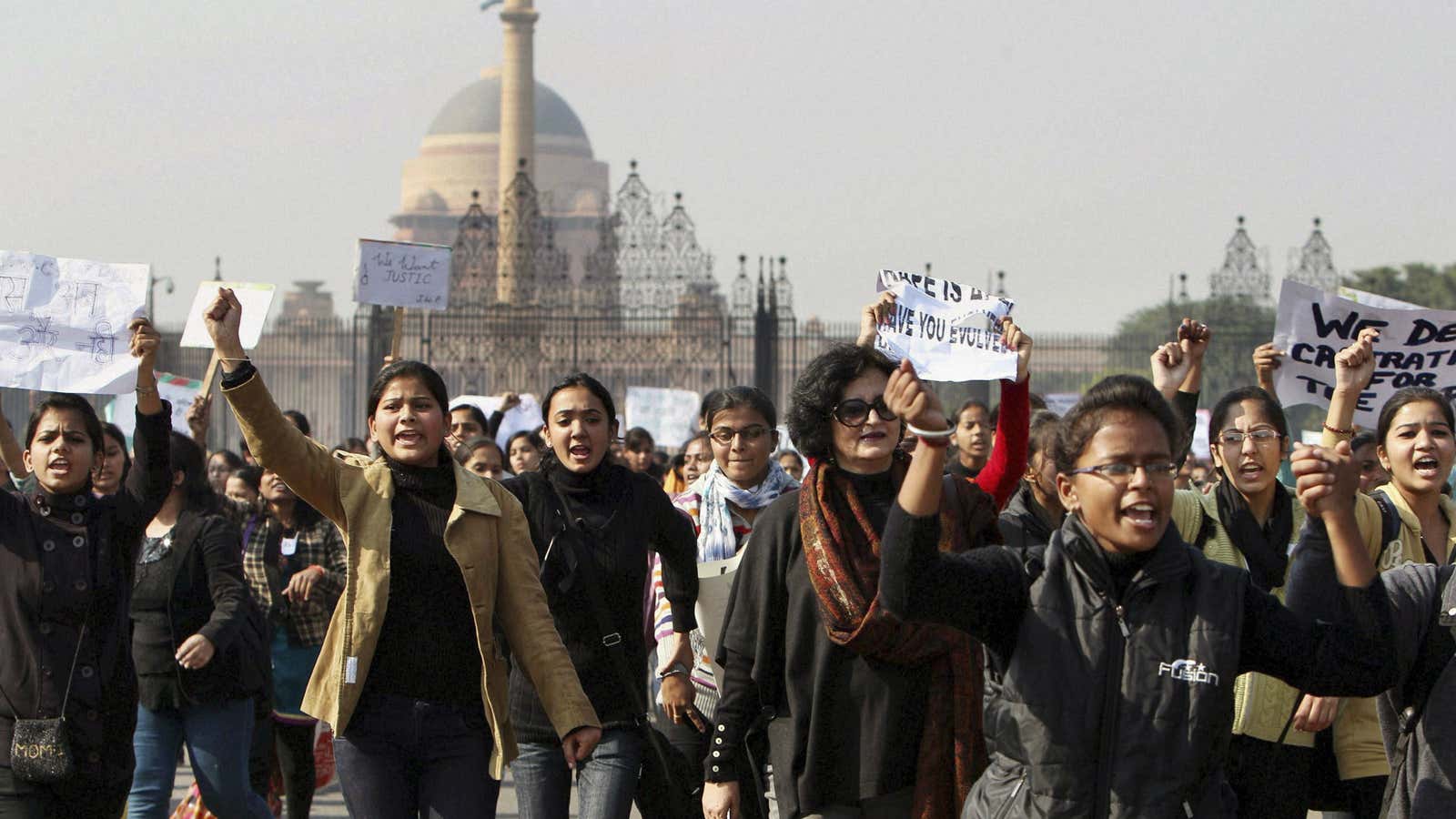Thousands of people have been protesting all day in New Delhi, as they have been all week after the gang rape of a woman riding a private bus. Dozens of activists and police were injured in today’s clashes, and officials are pleading for calm. Politicians promise to keep their promises this time. Home Minister Sushil Kumar Shinde held a press conference and pledged the government will “increase the number of buses at night, track those buses with GPS devices, ensure drivers carry identity badges and increase the number of police officers on busy routes.”
It’s going to take more than that to make India’s women feel safe. The attack, which occurred on Dec. 16, was so violent and horrific that a part of the 23-year-old victim’s intestines had to be removed. But it’s the day-to-day injustice that’s inspiring everyone to take back their streets. How will the government stop all that inappropriate touch that happens on its city buses every day? Or those hands that enter the sides of a rickshaw to just feel around? Or all those whistles and catcalls? Those are the questions people might have asked as they watched Shinde on television. Because really what can government do about all that?
In a speech with a translation that’s going viral, Kavita Krishnan captures the pulse of India’s outrage right now. She’s the secretary of the All India Progressive Women’s Association. The gang rape was brutal, yes, but so is the coded language used to discuss how to keep women safe.
…the word ‘safety’ with regard to women has been used far too much — all us women know what this ‘safety’ refers to, we have heard our parents use it, we have heard our communities, our principals, our wardens use it. Women know what ‘safety’ refers to. It means – You behave yourself. You get back into the house. You don’t dress in a particular way. Do not live by your freedom, and this means that you are safe. A whole range of patriarchal laws and institutions tell us what to do in the guise of keeping us ‘safe’. We reject this entire notion. We don’t want it.
In a piece this week for Quartz, Delhi-based writer Veena Venugopal reported that incidents of rape are on the rise because women are increasingly reporting the crime for what it is, not “sexual harassment,” not “eve teasing,” not “the way men will be.” Meanwhile, in her rousing speech, delivered in Hindi, Krishnan says the conviction rate of rapists has been on the decline, from 46% in 1971 to 26% in 2012.
These statistics and their opposite trajectories are telling of the way Indian women now see and assert themselves—and the way society and its institutions remain stuck, even regressive. There’s no better way to diminish women’s advances in the workplace (and on the homefront) in recent years. As Krishnan says:
If she simply wants to go out at night, if she wants to go out and buy a cigarette or go for a walk on the road — is this a crime for women? … We believe that regardless of whether she is indoors or outside, whether it is day or night, for whatever reason, however, she may be dressed — women have a right to freedom. And that freedom without fear is what we need to protect, to guard and respect.
It is laughable that the same government that couldn’t keep people safe at a protest today now vows to do better by women. Adding more night transport and security is a start. Installing a television and DVD player on every bus and making Krishnan’s speech required viewing, or keeping it on continuous loop, might be more effective.
